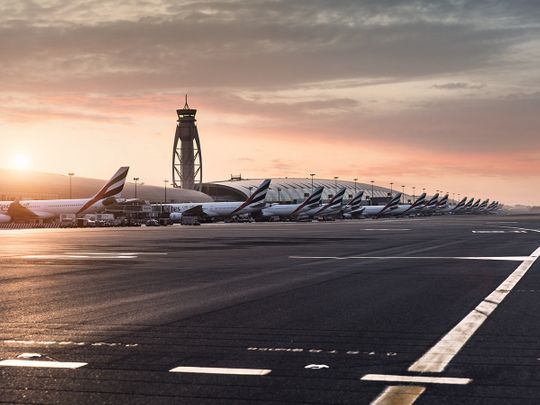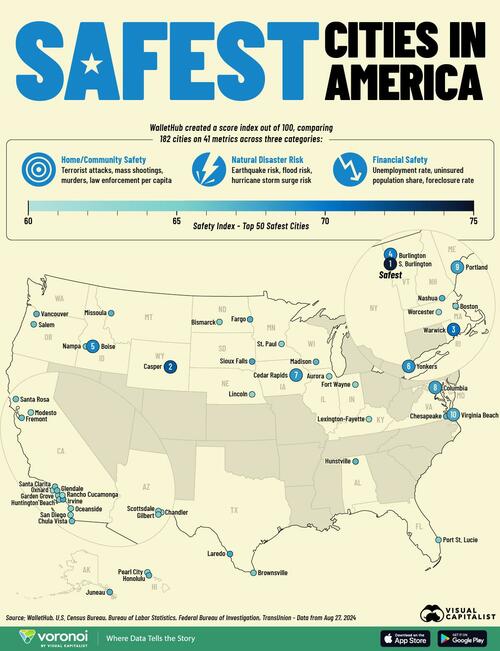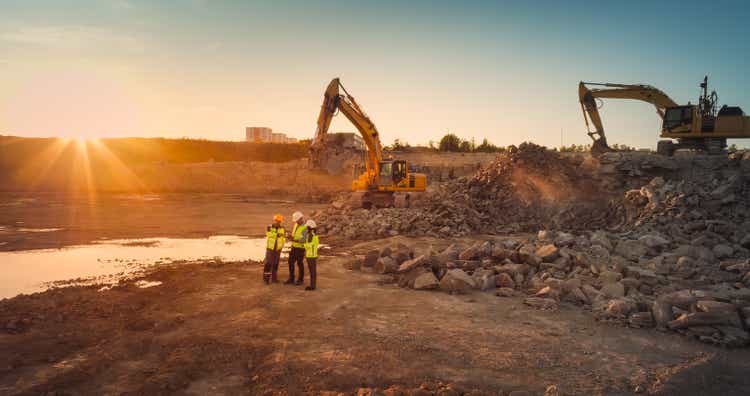
Dubai: The operations at Dubai International Airport (DXB) and Dubai World Central (DWC) will “complement each other” in the short term as Dubai Airports looks to manage the passenger boom that it is currently experiencing, CEO Paul Griffiths told Gulf News, when outlining plans for a gradual consolidation of operations. According to the CEO, Dubai Airport's inbound passenger growth has been driven by the overall development of Dubai’s position as a global hub. “Until that’s completed, most of the growth will be a combination of existing facilities of DWC, where we can accommodate about 23 million.
And we will continue to develop DXB to be able to accommodate about 110 million overall,” said the CEO. Get exclusive content with Gulf News WhatsApp channel Once the necessary infrastructure is in place, operations at DXB and DWC will be consolidated into a single facility, ensuring Dubai’s position as a leading global aviation hub. Dubai Airports is projected to handle 100 million passengers by 2027, Griffiths said, while adding: “The new airport development programme will be phased over quite a long time, and we will build incremental additional activity and capacity there (at DWC) to accommodate growth.
But the initial idea is to have about 150 million capacity to facilitate the move.” “But what will happen in the longer term is that the development of DWC phase two will eventually enable us to move all of the operations from DXB to DWC,” he explained. However, to move overall Dubai Airports operations to the proposed hub at DWC, also known as Al Maktoum International, the facility would need a total capacity of 150 million.
Griffiths's comments follow Dubai Airport’s Q3 passenger traffic number announcement early Tuesday, where he said the combined growth forecast for both hubs (DXB and DWC) will be 93 million by the end of the year, said the aviation veteran. Griffiths said DWC is seeing gradual growth in airline passengers. However, while there’s still available capacity at DXB, airline customers would prefer to come to where most of the airlines are currently operating, he added.
“The demand for DWC will intensify as soon as the amount of capacity available at DXB starts to diminish, and we’re not far away from that,” he explained. DWC recently added Air France subsidiary Transavia and Germany’s Eurowings to its network. According to Griffiths, several airlines from various parts of the world are currently operating at DWC.
“The number of diverse operations there (at DWC) is increasing. We have got a very large private jet fleet operating out of DWC, and, of course, we’ve got a very extensive cargo operation,” he added. “All of the dedicated cargo freighter aircraft are based now at DWC, and DXB is pretty much exclusively for passenger and belly cargo now,” he stated.
“I think the problem over the next couple of years, which is getting in the way of larger growth numbers, is the delivery of aircraft from Airbus and Boeing," he said. "(The deliveries) have been much slower than a lot of the airlines would ideally want," added Griffiths, resulting in slower growth. "There are elements that will have to conclude the design reviews quite quickly, but other elements can take a little longer," he said.
"The difficulty is, we're talking about processes and technology that probably don't exist in the real world at the moment, so we've got to go a long way down the sort of future gazing path to be able to design an infrastructure solution that will fit all the new ideas that are going to be put into the new airport operation," he added. Griffiths said while most of the necessary technology is available, it hasn’t yet been fully adapted for use in a live, high-volume environment. "We have promising concepts and plan to trial new technology at DXB over the next few years.
This will help refine the system before a full rollout at DWC, aligned with the airport's construction timeline," he said..













